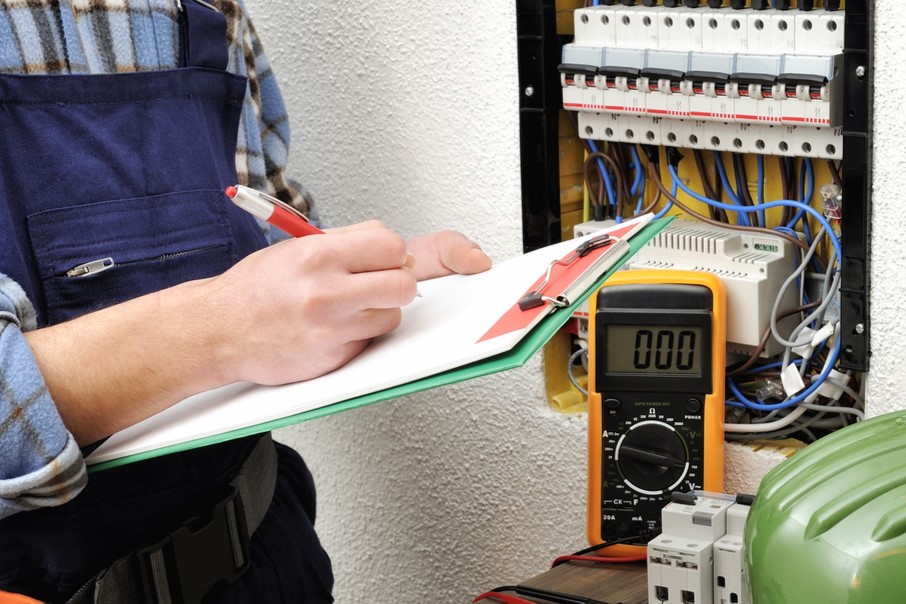
[ad_1]
Before becoming an installer, it is very important to fulfill the requirements of the profession and gain knowledge about the profession. The answers to questions that may help you, such as what is an installer and what are the requirements to become an installer, are now on İş Olsin!
What is an installer? The answer to the question is a professional who specializes in installing, maintaining and troubleshooting electrical systems as an indispensable element of modern life. Installation has an important role in regulating complex electrical systems and ensuring their safe operation. Electrical installers often install electrical installations in various types of buildings, industrial facilities or homes. What it takes to become an installerRequires expertise on many electrical components such as power lines, main distribution panels, sockets and lighting systems.
What is an installer?
In the magical world of electricity, there are mysterious figures who organize power connections and bring electrical systems to life: Electrical installers. Assemblers play an indispensable role in many areas of the technological age. Electrical installers have strong technical knowledge. What does the installer do? In answer to the question, it can be said that the installers have the ability to understand electrical diagrams and use hand tools expertly. Installers stand out not only for their knowledge but also for their manual skills. Thus how to become an installer The best answer to the question can be said in the form of experts who demonstrate their mastery in cabling, connection and assembly processes and solve the secrets of keeping electricity under control. Electrical installers are important figures who regulate and control electricity at the heart of technology. Organizing power connections and solving problems happens like magic in their hands, so our daily life flows smoothly.
What are the duties and responsibilities of the installer?
Installers are important professionals who ensure that electrical systems are organized and operate safely. Installer tasks can be listed as follows:
- Installation of electrical installations: Electrical installers install electrical installations in various buildings, industrial facilities or homes. It carefully carries out all connections from sockets to main distribution panels.
- Reading and applying electrical diagrams: Installers with strong technical knowledge understand electrical diagrams and perform assembly operations in accordance with these diagrams.
- Repair of electrical problems: Detects malfunctions in electrical systems and quickly carries out repairs. In this way, problems are resolved in minimum time.
- Compliance with safety standards: Electrical installers carry out their work in accordance with safety standards. When working with electricity, they prioritize their own safety and the safety of those around them.
- Following technological developments: Installers, who receive continuous training as part of their profession, closely follow technological developments related to electricity. In this way, they have the most up-to-date information.
- Providing solutions to customer needs: Electrical installers provide effective solutions by understanding customers’ demands. It increases customer satisfaction and enables them to provide a reliable service.
You can browse technician job postings in a wide geography to support your professional development and evaluate job opportunities in different cities.
What are the salaries of installers?
Salaries of installers vary depending on many factors. Generally, factors such as experience, field of expertise, education level and geographical location of work determine the salary level. For example, more experienced and specialized installers may earn higher salaries. Additionally, salaries in big cities may be higher than in rural areas. Salaries can often increase for installers who take on leadership or management responsibilities as well as technical skills within the profession. Additionally, economic conditions in the industry, the size of the company and the complexity of the projects can also affect the salary level. Installers with professional certifications are likely to have a more competitive salary than those without these credentials. In general, salaries for electrical installers vary depending on industry demand and supply, individual skill level, and the responsibilities required by the job. You can take advantage of opportunities by browsing through job postings in various cities, such as Istanbul technician job postings.
What are the working conditions of the installer?
Assembler work areas It covers a range of elements including conditions, physical and technical challenges. Installers may encounter physical tasks such as pulling cables, moving equipment, and various assembly operations. This may occasionally involve carrying heavy equipment or working in tight spaces. Assemblers can work in different sectors and projects. This may include the need to work indoors and outdoors, climb to high places, and occasionally work in tight or confined spaces. Working with electricity brings with it certain safety risks. Monitor technician job postings also show that they have to strictly comply with safety standards. These include the use of personal protective equipment, compliance with occupational safety protocols and assessment of environmental risks. Electrical installers may have flexible working hours depending on the needs of the projects. Standard working hours may be flexible, especially when working on emergency responses or special projects. Assemblers often work in a team. Thus, it also requires having collaboration and communication skills. Projects involve the coordination of multiple experts. Electrical installers must have a deep technical knowledge of electrical systems. In addition, he/she must be able to use hand tools expertly and produce technical solutions. Working conditions for installers are often dynamic and diverse. These terms and conditions installer responsibilitiesmay vary due to the nature of the profession and may differ depending on the projects.
[ad_2]
Source link








